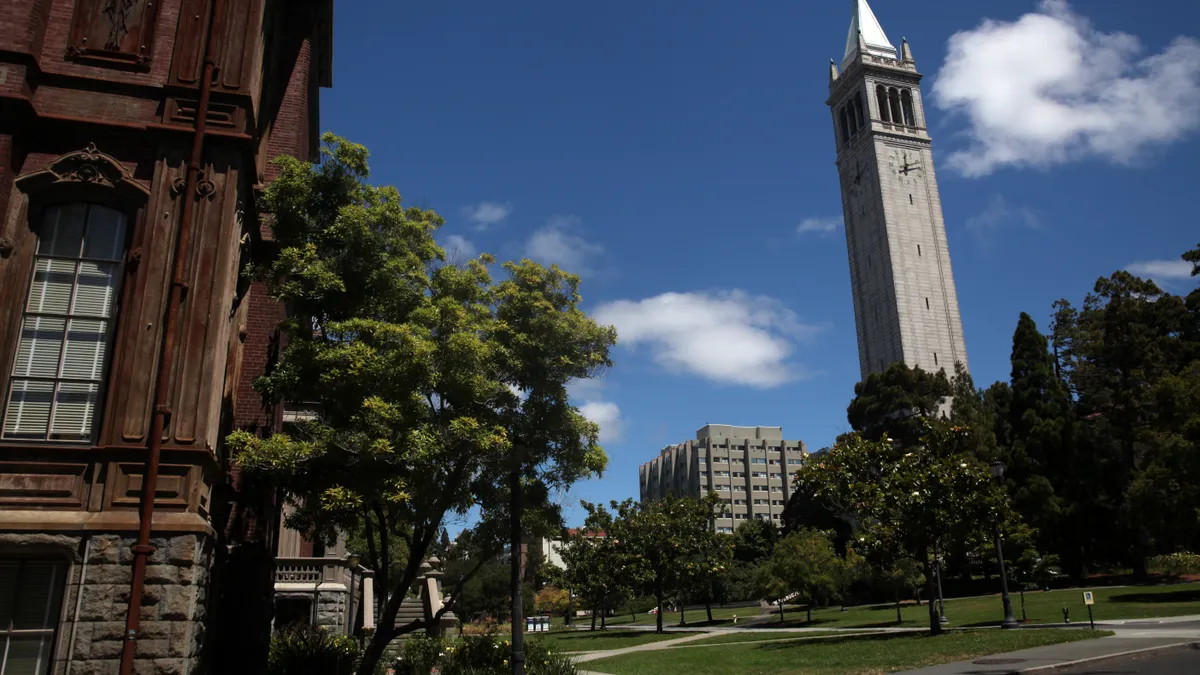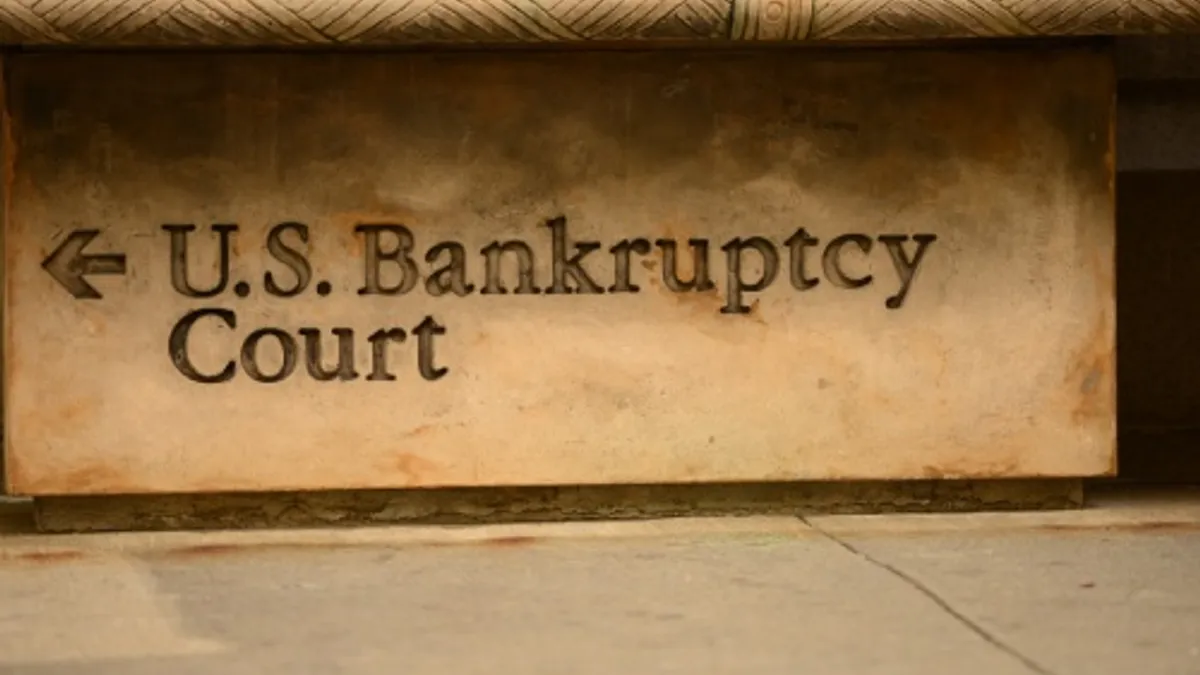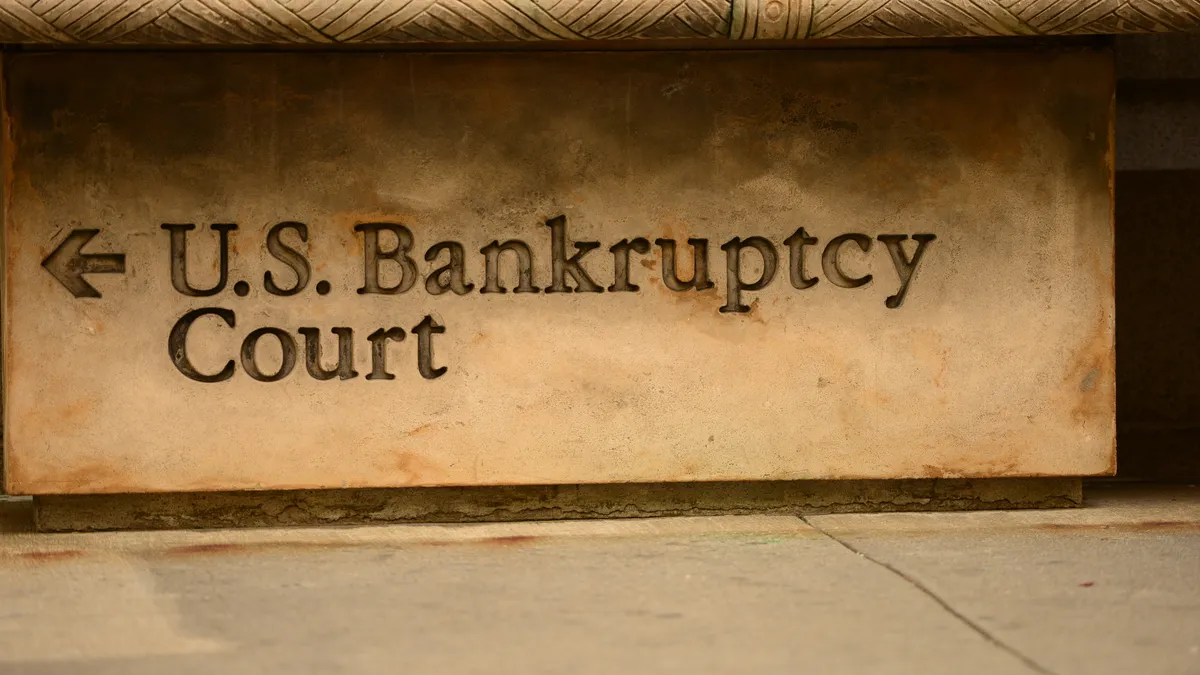If you believe the underlying premise of Arthur Levine's and Scott Van Pelt's new book, the country is moving from a national, industrial economy to a global knowledge economy — and that has significant ramifications for higher education.
It means higher ed is more important than ever, the authors write in the preface of the book, "The Great Upheaval." But it will be transformed in any number of uncertain ways, according to Levine, a distinguished scholar of higher ed at New York University and president emeritus of Columbia University's Teachers College, and Van Pelt, the associate director of the communications program at the Wharton School at the University of Pennsylvania.
They say colleges will see their control over the market slip while consumers increase their power. New content producers like companies and museums are entering the postsecondary market. Students will often prioritize personalized education and low prices. Measuring learning by time in seats will transition to outcome-based education. Degrees won't necessarily be the dominant form of credential anymore as students turn to "just-in-time education" that quickly teaches them the skills for microcredentials they need for the labor market.
But the authors acknowledge widespread disagreement over how these forces play out and exactly what the coming world looks like for higher ed. Higher Ed Dive talked with Levine about the ideas explored in the book and what higher ed leaders can do in the face of them.
Editor's note: This interview has been edited for brevity and clarity.
HIGHER ED DIVE: Higher education has been hearing about coming great disruptions for years. How is your argument different?
ARTHUR LEVINE: What makes this book different is that we don't begin with the assumption there's going to be disruption.
The reason for writing the book was, "Let's figure out what's really going to happen, as opposed to offering our opinions."
You discuss the idea that the digital revolution is putting more power in the hands of learners. Does that suggest problems to overcome?
It suggests profound problems.
Everybody can access new forms of higher education. They can also ask those new forms of higher education to do exactly what organizations like Amazon are doing for them, or what Coursera is doing for them.
What they can say is, "Look, we want this 24/7. We want unpackaged goods, so instead of giving me that whole degree program, just give me a few courses. What we're looking for is low cost. What we're looking for is an opportunity to take those things that are going to be most important to our futures, rather than a whole series of unrelated courses. We want unbundled education."
One of the interesting phenomena during the pandemic is that traditional enrollments in higher education declined but that enrollments in nontraditional providers boomed. An example is Coursera.
What does that suggest?
So you've got to ask yourself, what are they offering that would draw people there? One thing they are offering is 24/7. Another thing that they're offering is unbundled. Another thing they're offering is low cost, and that's very appealing.
Moreover, Coursera has courses from the top universities from around the world.
The point is that Google, for example, is offering a certification program, and it's in IT. Now, anybody can take that program at a college — a regional college or a community college. It'll take them much longer to complete. Although it will give them a degree, that degree doesn't have a lot of currency.
So what would a Google certification be worth to me as a person who earned it versus a credential, a degree from my local regional university? Everybody's heard of Google.
Do we risk undermining an important part of education if students who are personalizing their education don't collide with new ideas?
What you're describing scares the hell out of me. Yes, it's an enormous possibility that will happen. We can already see it in news. I've been waiting for "All Things Considered" to become "One Thing Considered," which is, "Pick what you want. There will be a show that does it."
Once upon a time we had general education, and general education was, in a way, the way in which colleges established the commonality of human heritage. Well, with what's available now, it becomes so specialized that that disappears, and that's a very real risk.
In many ways, the establishment of a common culture is going to have to happen in the schools, and those colleges that do continue to have students full time, residentially, need to include it as well in part of the degree programs.
Are regulatory changes that can enable public funding or some form of consumer protection needed before these things unfold?
One of the things we have are accrediting institutions. They do exactly what we wanted them to do in the Industrial Revolution: They set common standards, and they measure every institution against those standards.
We're going to have to work toward competencies or outcomes — and I hate the word competency, because it's overused, and it's used in a lot of different contexts and a lot of different definitions, but let's use it for this moment.
We're going to set a competency, and let's say that competency is the capacity to think critically. Well, I may have one definition. You're going to have another definition. The guy down the block is going to have a third definition. What we're going to have to work toward is common definitions of competencies. When I say you're competent at any given skill or body of knowledge, what's it mean?
We're going to see a lot of different definitions on the table. And gradually, we'll move toward more and more agreement on what it actually means and a common set of outcomes we can measure.
What does this coming world look like for people who have historically been discriminated against in the labor market?
You have hit on a real problem. One fear that I have is that this system we've developed will promote inequality.
What I'm really afraid of is that we'll create two kinds of education. One is more likely to be full time, one is more likely to be selected by wealthy students, one is more likely to end in degrees, one is likely to be more expensive.
And the other, well, online will be available much more cheaply to populations that can't afford the kinds of education I just described.
What colleges might be hit hardest?
Some institutions are going to close. That would have happened in any case. We have a demographic mismatch between where our colleges are and where the populations are. I think what happened with the pandemic, except for the current federal aid, it sped up the process.
We'll also see some number of institutions be able to adapt to all the changes that are occurring. Those institutions are two types: One is research universities, because we're still going to need to train researchers, and we will keep those institutions. Another one is residential education, because some people are still going to want the traditional experience. So we'll keep a bunch of those. I think in each case, the numbers will be diminished.
And third, for community colleges and regional universities, they're in very grave danger of being disrupted, because the question is, what can they offer that Coursera can't offer?
Can you suggest ways for higher ed leaders to navigate this future or shape a world where your fears don't become reality?
When we were talking to college presidents during the pandemic and I asked them what they wanted, their answer was, "We sort of want to get back to fall 2019."
That's never going to happen. What they need to do is look forward, not backward.
Second, they need to avoid all the usual traps: The divisions between faculty and administration, between boards and institutions.
And the biggest mistakes institutions can make now is to think that the world that you and I have talked about is only going to happen to other institutions — that they're special, they're different, they're unique.
Institutions really need to distinguish themselves. Institutions have got to make themselves and trade on what it is that makes themselves different in this new environment.
Can higher ed leaders do anything else?
For higher education to be successful, you have to have its feet in two worlds. One world is the library, and that's human heritage. And the other is the street. That's the real world, what's happening now. It's jobs, it's the workplace.
What happens when we change quickly is we continue as institutions to keep our hold on the library, but we lose traction in the street.
Institutions have to reestablish their traction. They have to prepare students for careers. They have to prepare students for the world, and we know how to do that.
I guess the last thing I'd say is institutions have to know they're not in the degree business. They're not in the credit business. They're not in the course business. They're in the education business, and they have to look at what's needed in education today, not the structure they currently have.
Do you have any suggestions for policymakers?
Recognize we've been through this before and we know what we have to do.
We need to review our regulations at least as the world changes around us, on a regular basis, 3 to 5 years.
We've got to change our definition of equity. What equity means now is giving all students the same resources in order to finish their degrees in four years. When we're talking about outcomes, the meaning of equity shifts. What it means is giving all students the opportunity to achieve those outcomes. That means applying differential resources to different students as they need them.
Did we miss anything?
In 1947, President Truman set up a commission to look at the future of higher education, and they produced this really radical report. One of the recommendations was that a majority of Americans can go to college, particularly two-year colleges.
But what they said was, beyond access, what you need is choice. People have to be able to go to the college that best fits their needs.
We've done an amazing job on access, not as good as we need to. We've completely forgotten about choice. We need to restore it, particularly with the danger I described earlier of two systems of higher education, separate and unequal.





















